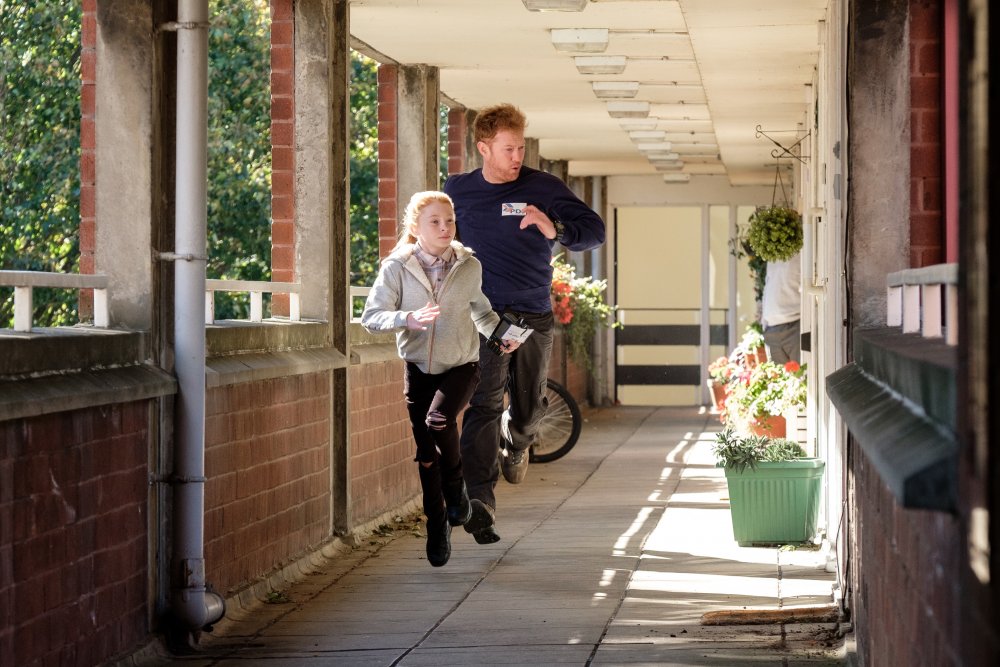It’s probably fair to say that Ken Loach’s no-nonsense style and abiding concern with socio-political issues are appreciated less in the UK than abroad; certainly, less than at the Cannes Film festival, where 14 of his films – probably some sort of record – have now screened in competition. Many have won prizes, and two of them – The Wind That Shakes the Barley and I, Daniel Blake – carried off the Palme d’Or. So Loach’s latest – and who knows whether it’ll be his last, since he’s more than once announced his likely retirement from making feature films and then changed his mind – has a lot to live up to.
UK/France/Belgium 2019
1hr 40mins
Director Ken Loach
Cast
Ricky Turner Kris Hitchen
Abbie Turner Debbie Honeywood
Seb Rhys Stone
Lisa Jane Katie Proctor
[1.85 : 1]
UK release date 1 November 2019
Happily, it delivers. Written by long-term collaborator Paul Laverty, the new film offers no surprises – even the opening voiceover, heard over the credits as the protagonist gives a quick resumé of his past jobs and present situation, is reminiscent of the start of I, Daniel Blake – but why should we expect or even want any changes when Loach does this sort of thing so well? It’s another tale of a predicament – in this case that of a family of four, rather than a single protagonist – proceeding slowly but surely from not-exactly-great to considerably worse, but it’s the sharp, telling attention to detail that makes the film both persuasive and affecting.
Set in Newcastle, it centres on Ricky – a labourer who’s proud never to have been on the dole, and hopes that becoming ‘his own boss’ as a freelance delivery driver working ‘with’ (rather than ‘for’) a franchise company will finally enable the family to purchase their own home – and Abby, a carer for the elderly, who agrees to sell her car so that Ricky can buy his own van rather than rent one at £65 a day. They’re proud of their bright kids – 15-year-old Seb and 10-year-old Liza Jane – and prepared to work long hours to give them the opportunities they never had. Trouble is, being out all day means they can’t spend as much time together as they’d like… and Seb, in particular, is clearly using his parents’ absences from the home as an excuse to go off and do his own thing; besides, his own job prospects don’t look that rosy, so why should he bother with school?

Katie Proctor as Lisa Jane and Rhys Stone as Seb
The film charts the effects of Ricky and Abby’s working lives on the family as a whole: he can barely afford to miss a delivery, while her zero-hours contract, coupled with her compassionate and conscientious generosity towards her patients, creates its own stressful pressures. It might occasionally overdo the ‘salt-of-the-earth’ characteristics of the parents and some of the people they have to deal with in their work; but sentimentality is generally held firmly at by a pleasingly acerbic sense of humour and by Loach and Laverty’s customary concern for authenticity. There are no real villains here – even Ricky’s self-proclaimed nasty-bastard ‘boss’ at the franchise is shown merely to be a cog in the gig-economy machine, part of a system that exploits everyone but the shareholders – and no sermonising as such, although there are a number of exchanges which make very clear why Ricky and Abby’s hopes turn to confusion and despair.
As in all Loach’s best work, the strong, grounded, naturalistic performances prevent the film becoming overly didactic, ensuring that it succeeds as stirring, plausible, relevant drama about the severely constrained options facing far too many in Britain today.
-
The Digital Edition and Archive quick link
Log in here to your digital edition and archive subscription, take a look at the packages on offer and buy a subscription.











